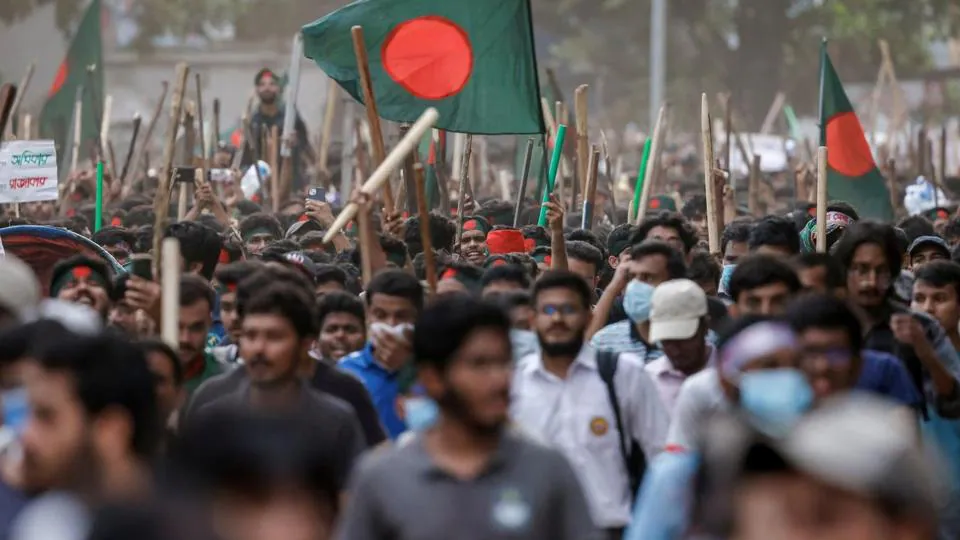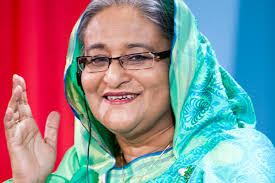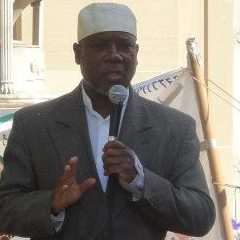
By El-Hajj Mauri’ Saalakhan – The Muslim Street
An old saying comes to mind when I think of the ongoing crisis in Bangladesh (and, truth be told, in a number of other countries in the global north and south as well): “He [or she] who would protest against a thing should be the last to practice it.”
Bangladesh is in crisis. At the time of this writing, at least 174 citizens have lost their lives, and at least 2500 have been arrested as a result of the public protests in the streets. There is also a “shoot to kill” order accompanying the nationwide curfew. What triggered such unrest in this southeast Asian nation of over 174 million people (the eighth most populace country in the world)?
Salil Tripathi, author of “The Colonel Who Would Not Repent,” said in a recent “Democracy Now” interview Bangladesh has a jobs crisis, and there’s a lot of anxiety about security. Despite the economic growth figures that suggest Bangladesh is doing better, “There is growing inequality, because there are a lot of people who have become very wealthy – and some of that wealth is the result of corruption and nepotism; so the collective anger that we’re seeing is the result of inequality, lack of opportunity, and a perception that those who are close to the ruling class, and ruling elite, are getting all of the benefits.”
This perception is fed in large part by a policy that has its roots in the immediate post-independence era, when 30 percent of government jobs were allocated to the men who fought the 1971 “War of Independence.” Later this benefit was extended to the families of those soldiers in perpetuity. In a country where well-educated young men and women are exploited as cheap labor by more well-to-do countries in the “global south,” and by multinational corporations from the global north, dissatisfaction in Bangladesh has reached an understandable boiling point!
The Rise of Sheikh Hasina Wazed...

Prime Minister of Bangladesh
Sheikh Hasina has been at the helm of Bangladesh for over 20 years combined. First from June 1996 – July 2001; and later from January 2009 to the present. The road to becoming the longest serving prime minister in Bangladesh’s history, and the longest serving female head of state in the world, has not come without a price, however.
Sheikh Hasina’s father, Sheikh Mujibur Rahman, was the founding father and first president of Bangladesh. Returning to that old saying at the beginning of this article, a twisted bit of irony is connected to what we are seeing today. The four-term prime minister of Bangladesh suffered a horrific tragedy on August 15, 1975, when her entire family – with the exception of her husband and children, and her sister (Sheikh Rehana) – was murdered in a coup d’etat. The lone survivors were visiting Europe at the time of the assassinations; and were subsequently granted political asylum in India for a number of years.
Hasina was reportedly barred from re-entering Bangladesh by the military government of Ziaur Rahman. However, on February 16, 1981, Hasina was elected President of the Awami League in Bangladesh. She returned home in May of that year to a warm welcome of thousands of Awami League supporters.
Her tenure as prime minister has reportedly been a mixed bag. She was among Time Magazine’s “100 most influential people in the world” in 2018, and rated among the “100 most powerful women in the world” by Forbes Magazine in 2015, 2018, and 2022. On the down side, Human Rights Watch documented widespread enforced disappearances and extrajudicial killings under her government. Politicians and journalists have reportedly been judicially punished for challenging her views. In 2021, Reporters Without Borders negatively assessed her media policy for allegedly curbing press freedom in Bangladesh since 2014.
In Conclusion…
In addition to my own research, I’ve sought the insight of a number of friends of Bengali heritage for this article. The following (from one of those sources) sums up the opinions that I received fairly well:
“Please don’t quote me [by name]. My personal opinion: I think what’s happening in Bangladesh is wrong. Students have their right to get jobs and the quota system should be fair for students with merits.
“I live abroad, so for me all politicians of Bangladesh are the same. Killing innocent students just because they were protesting for something that is legit and justified is not acceptable. What the government is doing with the internet and telecommunications blackout should not have been done.
“The government should have come to this new quota system before the situation got so out of hand. The loss of reportedly almost 200 students [unofficially a lot more] by the government is horrible and disgusting. Justice should be served.”
I couldn’t agree more!
————————–
El-Hajj Mauri’ Saalakhan is a Metro-Washington, DC based human rights advocate. He serves as Director of Operations for The Aafia Foundation, Inc.

